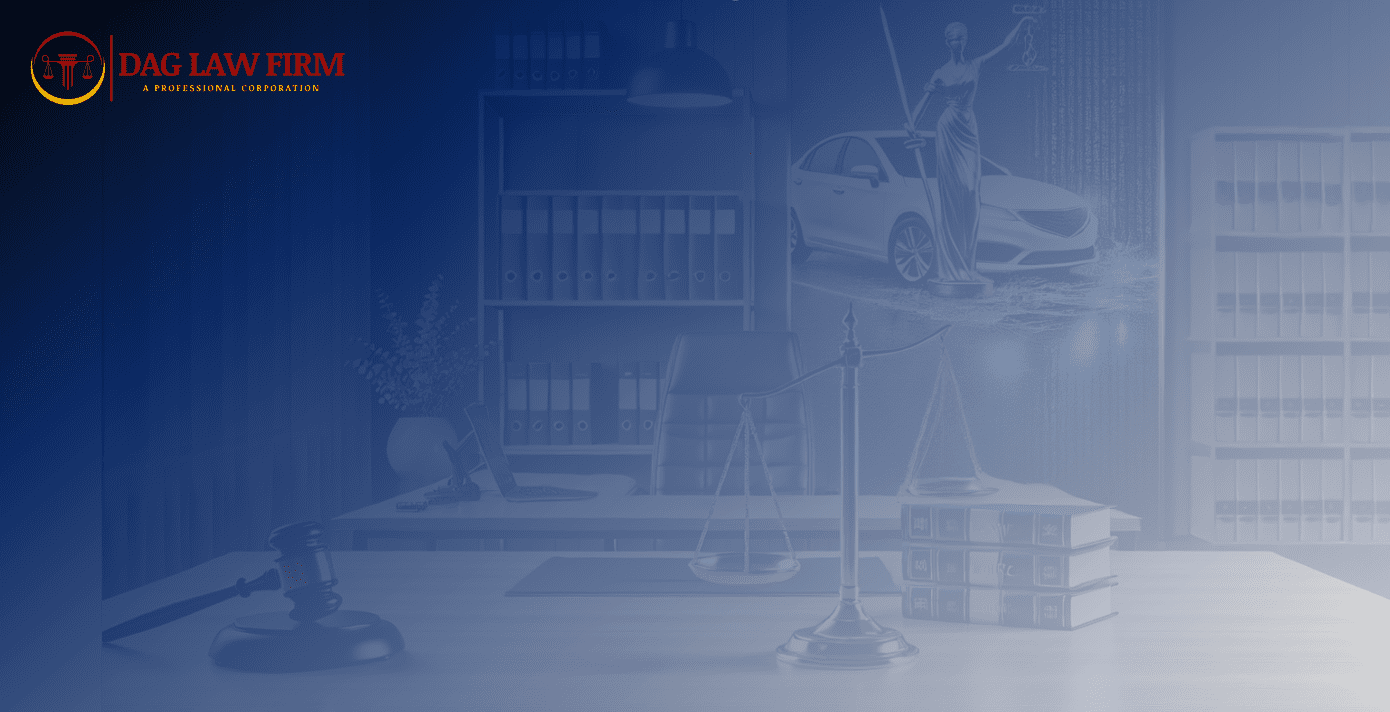Navigating Negligence in Personal Injury Cases: Your Path to Justice
DAG Law Firm brings extensive expertise to handling personal injury and accident claims, offering unparalleled guidance, counseling, and securing financial compensation for our clients. With a deep recognizing of the complexities involved, we provide personalized support every step of the way, ensuring you fully comprehend each aspect of the legal process. Whether you seek advice or action, count on us to represent your interests and address your distinct needs with unwavering dedication and diligence.
In the aftermath of an accident, the path to justice may seem daunting. You may have questions about negligence and whether you can seek compensation for your injuries. At DAG Law Firm, we understand the turmoil and uncertainty you may be facing and are here to provide clarity and direction.
Negligence
Negligence is a fundamental concept in personal injury law. It refers to the failure to exercise the level of care that a reasonably prudent person would have exercised in similar circumstances. In legal terms, proving negligence involves demonstrating the following elements:
Duty of Care:
– Establishing that the defendant owed a legal duty to the plaintiff to act in a reasonable and responsible manner.
Breach of Duty:
– Showing that the defendant breached this duty through their actions or omissions.
Causation:
– Proving that the defendant’s breach of duty directly caused the plaintiff’s injuries.
Damages:
– Demonstrating the tangible and intangible losses suffered by the plaintiff as a result of the defendant’s negligence.
Appreciating these elements is crucial in building a strong case to pursue the compensation you deserve.
Can You Waive Negligence?
When seeking legal counsel for a personal injury case, the question of whether negligence can be waived often arises. While negligence cannot be entirely waived, California follows a comparative negligence standard, which allows plaintiffs to recover damages even if they are partially at fault for their injuries. Here’s what you should know about the concept of comparative negligence:
Pure Comparative Negligence:
– In California, the pure comparative negligence rule allows plaintiffs to recover damages even if they are found to be 99% at fault. However, the damages awarded are reduced by the percentage of the plaintiff’s fault.
Contributory Negligence:
– Under this rule, if the plaintiff is found to have contributed to their injuries in any way, they may be barred from recovering any damages.
Appreciating the nuances of comparative negligence is essential in evaluating the strength of your case and potential outcomes.
Building a Strong Case: Proving Negligence in Personal Injury Claims
Proving negligence in a personal injury claim requires a meticulous approach and compelling evidence. At DAG Law Firm, we leverage our expertise to build robust cases for our clients by:
Conducting Thorough Investigations:
– Gathering evidence, interviewing witnesses, and examining the circumstances surrounding the accident to establish the defendant’s breach of duty.
Utilizing Expert Testimony:
– Engaging qualified experts to provide professional opinions on the defendant’s actions and the resulting damages.
Negotiating with Insurance Companies:
– Advocating on behalf of our clients to secure fair compensation through skillful negotiations with insurance companies.
Litigating in Court:
– If a fair settlement cannot be reached, we are prepared to take your case to court and vigorously advocate for your rights before a judge and jury.
ntrusting us with your case, you can be assured that we will leave no stone unturned in pursuing the compensation you deserve.
Conclusion:
By choosing DAG Law Firm, you are gaining an ally dedicated to fighting for your rights and securing the compensation you deserve. Schedule an appointment today and take the first step toward reclaiming your life after an injury.



